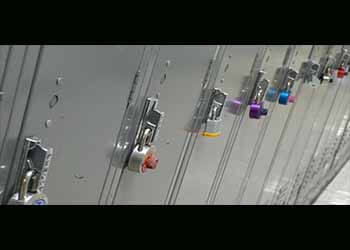Can teachers search your backpack? Well, the question of whether teachers can look through your backpack is a topic of considerable debate and concern among students and educators alike. While ensuring a safe and secure learning environment is paramount, it raises important questions about students’ privacy rights and the extent to which educators must balance these concerns. In this discussion, we will explore the legal and ethical considerations surrounding this issue, can teachers look through your backpack, shedding light on the circumstances under which teachers can look through your backpack and the boundaries that must be upheld in doing so.
Can Teachers Look Through Your Backpack?

So, can teachers search your backpacks?
Well, the ability for teachers to look through a student’s backpack largely depends on the specific school policies, local laws, and the context of the situation. In general, teachers have a responsibility to maintain a safe and orderly learning environment. This includes addressing concerns related to students bringing prohibited items like weapons, drugs, or items that disrupt the learning process.
Typically, teachers can look through a student’s backpack if they have reasonable suspicion that it contains items that violate school rules or pose a danger. However, it’s crucial for any search to be conducted in a respectful and non-invasive manner. Some schools may require teachers to have administrative or parental consent before conducting a search, while others may grant teachers the authority to search students’ belongings if there’s immediate concern for safety.
It’s important to note that student rights and privacy are also protected under the Fourth Amendment of the United States Constitution, which prohibits unreasonable searches and seizures. Therefore, any search conducted by teachers should align with established legal standards, such as reasonable suspicion, to avoid violating students’ rights.
In summary, whether teachers can look through a student’s backpack depends on the circumstances, school policies, and local laws. While maintaining a safe learning environment is essential, it should be balanced with respecting students’ rights and privacy.
Can A Teacher Ask You To Empty Your Pockets?
So, can a teacher really search your backpack or ask you to empty your pockets? Whether a teacher can ask a student to empty their pockets typically depends on the specific school policies and local laws in place. In many cases, teachers have the authority to request that a student empty their pockets if they have a reasonable suspicion that the student may be carrying prohibited items, such as weapons, drugs, or items that disrupt the learning environment.
However, it’s important to note that any search conducted by a teacher should adhere to established legal standards, including reasonable suspicion. The Fourth Amendment of the United States Constitution, for example, protects individuals from unreasonable searches and seizures. As such, if a student believes that a pocket search is unjustified or invasive, they may have the right to refuse, and it may be advisable for them to consult with school administrators or parents regarding the situation.
Overall, the ability of a teacher to ask a student to empty their pockets will depend on the specific circumstances and the policies in place at the school. Students’ rights and privacy should be respected while maintaining a safe and secure learning environment.
Do I Have The Right To Refuse To Be Searched?
Can teachers search your backpacks and if they do, can I refuse to be searched?
To tell the truth, your rights regarding refusing a search by a teacher in a school setting can vary depending on several factors, including your location, the school’s policies, and the circumstances of the search. Here are some general considerations:
School Policies:
Most schools have policies in place that outline the rights and responsibilities of both students and teachers. These policies often address issues related to searches and may specify the conditions under which searches can be conducted. It’s important to familiarize yourself with your school’s policies to understand your rights.
Reasonable Suspicion:
In many cases, a teacher or school administrator may only search a student if they have reasonable suspicion that the student is in possession of prohibited items or is violating school rules. This reasonable suspicion should be based on specific and credible information, not mere speculation.
Consent:
In some situations, a student may be asked for consent to be searched. You generally have the right to refuse a search if you are asked for consent. However, it’s important to make this refusal clear and respectful. Keep in mind that refusing a search does not necessarily mean you won’t face consequences, such as disciplinary actions.
Parental Involvement:
Depending on school policies and local laws, parents or guardians may need to be involved in the decision to search a student’s belongings. This often depends on the severity of the situation and the school’s specific procedures.
Legal Standards:
The Fourth Amendment of the United States Constitution protects individuals from unreasonable searches and seizures by government officials, including school officials. If a search is deemed unreasonable or violates your constitutional rights, you may have legal recourse. However, the application of the Fourth Amendment in a school setting can be complex and may depend on the circumstances.
It’s important to remember that while you may have rights regarding searches, schools also have a responsibility to maintain a safe and orderly learning environment. Balancing students’ rights with the need for security and discipline is an ongoing challenge. If you believe your rights have been violated or you have concerns about a search, it’s advisable to discuss the situation with school administrators, parents, or legal counsel to determine the best course of action.
Is It OK To Check In A Backpack?
Can a teacher search your backpack or locker? Or, is it really okay to check in a bag? Or, are school allowed to search your backpack?
Well, it’s acceptable to check a student’s backpack in a school setting, but it should be done in specific circumstances and in accordance with school policies. Generally, searches are conducted based on reasonable suspicion of prohibited items or safety concerns. School policies and the law should guide these actions, and students often have the right to refuse consent but may face consequences. Parental involvement and respecting students’ rights are also important considerations in such situations.
Can My School Search Me Without My Consent?
Here, there are several types of questions with the same meaning are asked. Let’s see those different types of questions-
- Do schools have the right to search students’ backpacks?
- Can schools search your bag without consent?
- Are schools allowed to search students’ backpacks?
- Can a teacher search your bag?
- Can schools check your backpack?
- Can a principal search your backpack?
- Are schools allowed to search your bag?
Well, in general, yes, schools can search students without their consent, but it must be based on reasonable suspicion of violating school rules or posing a safety risk. The specific rules and procedures for conducting searches can vary by school district and jurisdiction, so it’s essential to be aware of your school’s policies and any applicable local laws. However, students’ rights should be respected throughout the process, and searches should be conducted in a manner that is reasonable and respectful of their privacy. If you have concerns about a search at your school, it’s advisable to discuss the situation with school administrators or seek legal advice if necessary. Know more.
Can My School Conduct A Random Search Of Students In My School?
The legality of random searches of students in a school depends on the specific laws and policies in your jurisdiction and school district. Some jurisdictions allow random searches as a proactive safety measure, while others may not. It’s essential to check your school’s policies and local laws to determine if random searches are permitted. However, even if allowed, random searches should typically be conducted in a manner that respects students’ rights and privacy and is reasonable in scope.
Do school officials need a warrant to search my belongings?
In a school setting, generally, school officials do not need a warrant to search a student’s belongings. The U.S. Supreme Court has established that students have reduced privacy rights in school compared to the broader Fourth Amendment rights against unreasonable searches and seizures.
However, searches should still be reasonable and typically require reasonable suspicion. School policies and state laws may vary, so it’s important to be aware of your school’s specific policies and local regulations regarding searches. Additionally, in some cases, parental consent may be required, depending on the circumstances and school policies.
It’s crucial to consult with school administrators or legal counsel if you have concerns about a search at your school, as the specifics can vary depending on jurisdiction and circumstances.
Can My School Search My Desk Or Locker?

So, can schools search your bag? Or, are schools allowed to search your bag? Or, are schools allowed to search students backpacks?
To answer those questions- Yes, in many cases, schools have the authority to search a student’s desk or locker without a warrant. This authority is typically granted under school policies and is subject to the legal standards for searches in educational environments. School officials may conduct such searches if they have reasonable suspicion that a student’s desk or locker contains prohibited items, poses a safety risk, or is being used to violate school rules.
However, the specifics can vary depending on the school’s policies and local regulations, so it’s essential to be aware of your school’s rules regarding searches. Students’ rights should be respected during these searches, and they should be conducted in a manner that is reasonable and respectful of their privacy. If you have concerns or questions about locker or desk searches at your school, it’s advisable to discuss them with school administrators.
Frequently Asked Questions: [Can Teachers Look Through Your Backpack]
Q1: Can teachers search my backpack without my permission?
A1: In many cases, yes. Teachers can search your backpack if they have reasonable suspicion that it contains items that violate school rules or pose a safety risk. However, this varies based on school policies and local laws.
Q2: Do I have the right to refuse a backpack search by a teacher?
A2: Yes, you generally have the right to refuse a search by a teacher. However, refusing a search may result in consequences, such as disciplinary actions, depending on the circumstances.
Q3: Can a teacher search my backpack without telling me why?
A3: Generally, it’s advisable for a teacher to provide a reason or basis for the search, such as reasonable suspicion. This helps maintain transparency and fairness.
Q4: What should I do if I believe a teacher’s backpack search was unjustified?
A4: If you believe a search was unjustified, you can discuss the situation with school administrators, your parents, or seek legal advice if necessary. Find more.
Q5: Are there any legal protections for students regarding backpack searches in school?
A5: The Fourth Amendment of the United States Constitution protects individuals from unreasonable searches and seizures, but its application in a school setting can be complex. Students’ rights may vary depending on the circumstances and jurisdiction.
Q6: Can teachers search my backpack for any reason, or are there limits?
A6: There are typically limits. Searches should be based on reasonable suspicion and conducted in accordance with school policies and local laws. Know more.
Q7: Can parents or guardians be involved in the decision to search a student’s backpack?
A7: Depending on school policies and local laws, parental consent or notification may be required before a backpack search, especially in more serious situations.
Final Words
In conclusion, the issue of whether teachers can look through students’ backpacks is a complex and nuanced one. While schools have a responsibility to maintain a safe and secure learning environment, students also have rights that should be respected. The key factors to consider include school policies, local laws, reasonable suspicion, and the need for transparency and fairness in any search conducted. It’s essential for students to be aware of their rights and responsibilities in such situations and to seek guidance from school administrators or legal counsel if they have concerns. Balancing safety and individual rights remains an ongoing challenge in the educational context.
Read More Articles:
- Best Lightweight Luggage for Seniors
- Travelpro Maxlite 5 Backpack
- How to Set Coolife Luggage Lock?
- Best Backpack with Charger
- Why Is Rimowa So Expensive? [Know Why?]
- How Big Is 62 Linear Inch Luggage?
- How to Wash Pottery Barn Lunch Boxes
- How To Connect Pottery Barn Kids Lunch Box To Backpack?
- Timbuk2 Vs Chrome- Which One Should I Pick?
- How Do Charging Backpacks Work?

